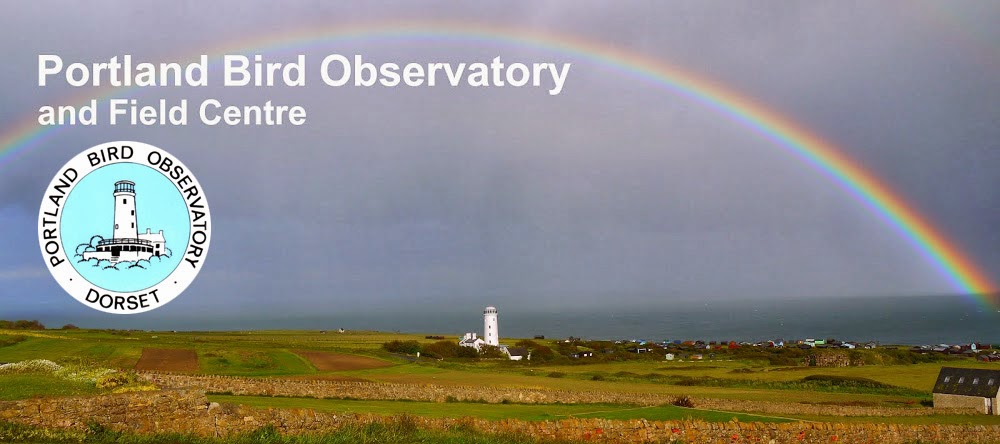On a warmer day than yesterday the breeze wasn't quiet so stiff and the migrant tally was correspondingly a little diminished. The
Tree Sparrow was again knocking around at the Bill and, as befits the time of year, it was
Spotted Flycatchers that were the most conspicuous new arrivals there, with 16 logged;
Willow Warblers were actually slightly more numerous - 20 in total - but they and other tardy migrants are getting harder to census now that the trees are almost entirely leafy. Other arrivals at the Bill included 6 each of
Wheatear and
Chiffchaff, 5
Blackcaps, 3
Redstarts and singles of
Yellow Wagtail,
Whinchat and
Garden Warbler; a
Nightingale at Reap Lane was easily the most noteworthy migrant elsewhere. Visible passage included a good showing from
House Martins, together with a single
Hobby through at the Bill. Despite the offshore breeze
Manx Shearwaters staged another good evening movement when 312 were counted in a sample hour at the Bill, whilst 3
Arctic Skuas, 2
Great Northern Divers and a single
Great Skua passed by there at other times.
The Tree Sparrow - we're presuming that all the recent sightings relate to the same individual - finally gave itself up for a photograph © Erin Taylor...

...and Nick Hopper discovered that he'd got a recording of it calling after he'd left his nocturnal recording gear switched on well into Sunday morning:
The find of the day though came courtesy of Erin Taylor who stumbled upon several Common Twayblade orchids on the Slopes at the Bill; the orchid flora of Portland isn't exactly rich so even our woefully inadequate botanical knowledge extended to being unaware of any previous Portland records - a fact that's subsequently been confirmed by Ken Dolbear and Brian Edwards © Martin Cade:
After being a notable absentee from the year list in 2017 it was nice to be able to add Nightingale to this year's tally; it remained resolutely invisible in its chosen elderberry patch beside the Reap Lane barn but at times it was blasting out some quite prolonged bursts of mainly half-hearted song (or at least it was trying to in the face of competition from a typical Portland soundscape of a combination of a pile driver, a helicopter and a whole bunch a noisy baby Starlings!):
Just as a lot of the other things that we're trying to get to grips with are getting increasingly furtive Spotted Flycatchers do at least have the rather agreeable habit of making themselves pretty obvious © Martin Cade:



















































